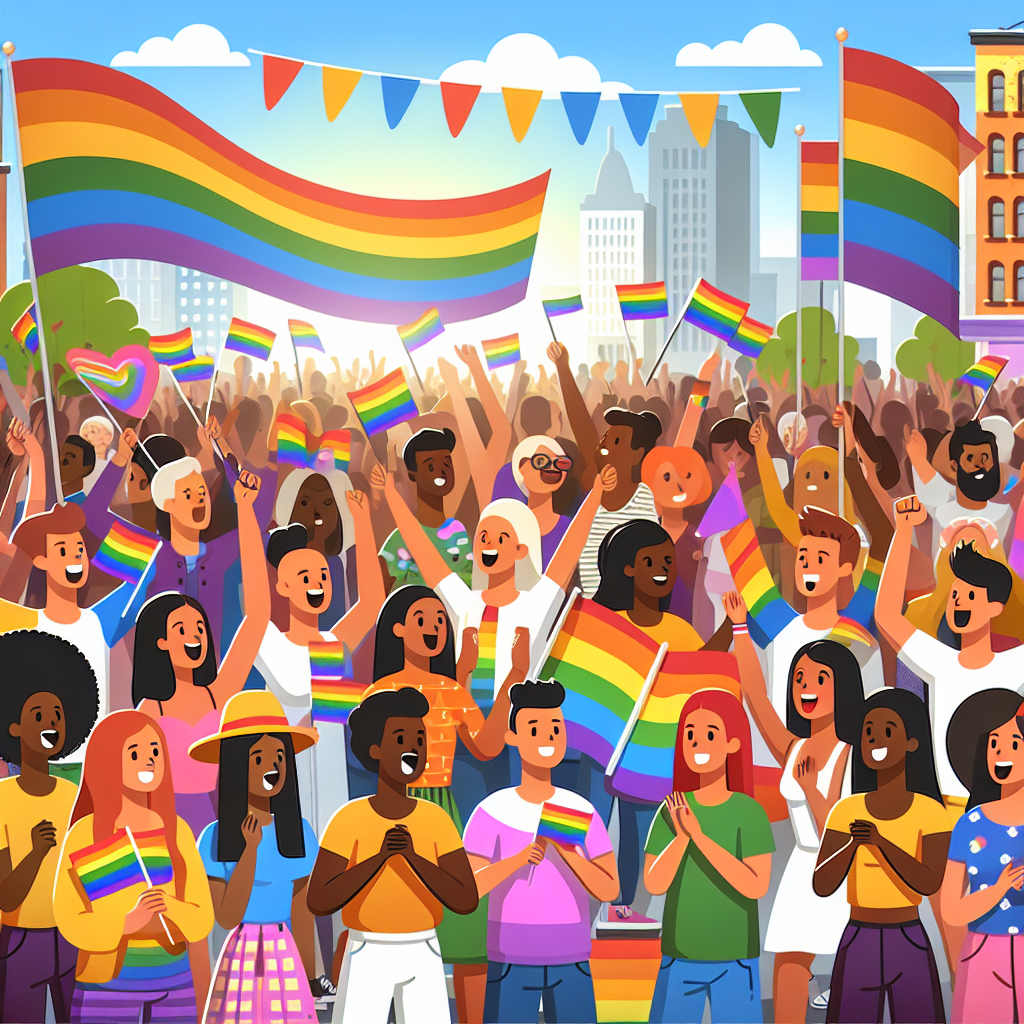UN Expert Urges Global Action to Ensure Safe and Inclusive Education for LGBT Learners
Reid emphasized that education is not merely a basic human right but a “multiplier of rights”, serving as a foundation for empowerment, equality, and participation in society.

Access to safe, inclusive, and equitable education remains a distant goal for many lesbian, gay, bisexual, trans, and gender-diverse (LGBT) students around the world, according to a new report presented to the UN General Assembly by Graeme Reid, the UN Independent Expert on protection against violence and discrimination based on sexual orientation and gender identity.
Reid's report paints a sobering picture of how discrimination and violence against LGBT learners continue to undermine the fundamental right to education and broader human rights principles of equality, dignity, and non-discrimination. Despite progress in some regions, millions of young people still face hostile school environments, leading to widespread exclusion, psychological harm, and lifelong disadvantages.
Education as a Fundamental Right and Multiplier of Equality
Reid emphasized that education is not merely a basic human right but a "multiplier of rights", serving as a foundation for empowerment, equality, and participation in society.
"Education is not only a fundamental human right in itself, but also a multiplier of rights," he said. "When LGBT persons are denied inclusive access to education, the principles of equality and justice for all are undermined. Every learner deserves to thrive in a school that is safe, respectful, and inclusive."
However, in many countries, this vision remains far from reality. The report documents disproportionately high rates of bullying, harassment, and violence against LGBT learners—often at the hands of peers, and in some cases, perpetuated or condoned by teachers and administrators.
Widespread Barriers and Legal Restrictions
The report reveals that restrictive laws and policies in several countries actively prohibit or discourage discussions about sexual orientation and gender identity in schools. These so-called "no-promo-homo" laws not only foster stigma and misinformation but also suppress educators' ability to create inclusive learning environments.
In some settings, teachers who attempt to support LGBT students risk disciplinary action or public backlash, reinforcing a culture of silence and fear.
Trans and gender-diverse students face particularly severe challenges. Many are denied gender recognition in official school records, restricted by binary dress codes, or barred from using restrooms and facilities consistent with their gender identity. These exclusionary practices contribute to higher dropout rates, mental health issues, and social marginalization that persist into adulthood.
The Human Cost of Exclusion
The consequences of these discriminatory practices extend beyond the classroom. According to Reid's findings, LGBT learners who experience bullying or violence are more likely to suffer from depression, anxiety, and suicidal ideation, and are less likely to complete secondary or higher education. This, in turn, limits their access to employment, healthcare, and civic participation, perpetuating cycles of inequality.
The report underscores that violence and exclusion in education violate multiple international human rights treaties, including the Convention on the Rights of the Child (CRC), the International Covenant on Economic, Social and Cultural Rights (ICESCR), and commitments under the 2030 Agenda for Sustainable Development, which pledges to "leave no one behind."
Promising Models and Inclusive Reforms
Despite these challenges, the report highlights encouraging examples from countries that have made progress toward inclusive education reform. In nations where anti-bullying policies, teacher training, and LGBT-inclusive curricula have been implemented, schools have seen measurable improvements in safety, academic performance, and student well-being.
Countries such as Canada, Uruguay, Portugal, and Nepal have adopted rights-based approaches that promote diversity and inclusion in education. Their efforts include developing gender-neutral facilities, revising curricula to reflect diverse family structures, and offering support networks for LGBT students.
Reid emphasized that these practices benefit all students, not just LGBT learners:
"Education must empower all learners to understand and respect diversity. States have an urgent obligation to ensure that no child is left behind because of their gender identity or sexual orientation. Inclusive education benefits everyone—it builds safer schools, stronger communities, and fairer societies."
A Call to Governments and Global Partners
The Independent Expert called on States to implement comprehensive reforms grounded in human rights principles. Key recommendations include:
-
Adopting and enforcing inclusive anti-discrimination laws that explicitly protect sexual orientation and gender identity.
-
Integrating comprehensive sexuality and health education into national curricula to promote respect, consent, and diversity.
-
Ensuring legal recognition of gender identity within educational systems, including names, uniforms, and access to appropriate facilities.
-
Establishing safe and confidential reporting mechanisms for students who experience harassment or violence.
-
Strengthening partnerships among governments, educators, and civil society organizations to advance inclusive policies and monitor progress.
Building Safe and Inclusive Futures
Reid concluded that addressing violence and discrimination in education is not only a matter of protecting individual rights but also of shaping more inclusive, democratic, and equitable societies. He stressed that inclusive education is essential for achieving global commitments under Sustainable Development Goal 4 (SDG 4) on quality education and SDG 10 on reduced inequalities.
"Schools should be places where every child can learn free from fear and prejudice," Reid said. "Inclusive education is the foundation of equality — and equality is the foundation of peace."
As countries work toward achieving universal education, the UN report serves as a powerful reminder that no child or young person should be denied their right to learn and thrive because of who they are or whom they love.
ALSO READ
-
Florida Clears Path for Restrictive Real Estate Law on Chinese Citizens
-
Operation Sindoor: Redefining India's Military Strategy
-
Man Jailed for Harassment on Mumbai Train
-
Freedom for French Nationals: Iran's Diplomatic Gesture
-
French Investigations Spotlight Major Online Retailers Over Suspected Rule Breaches









